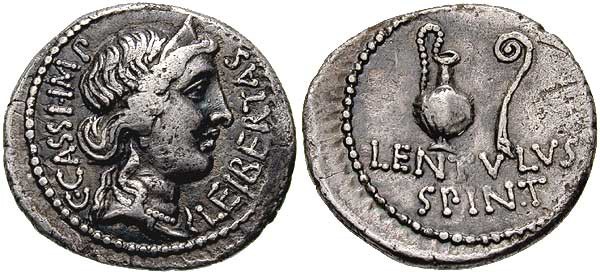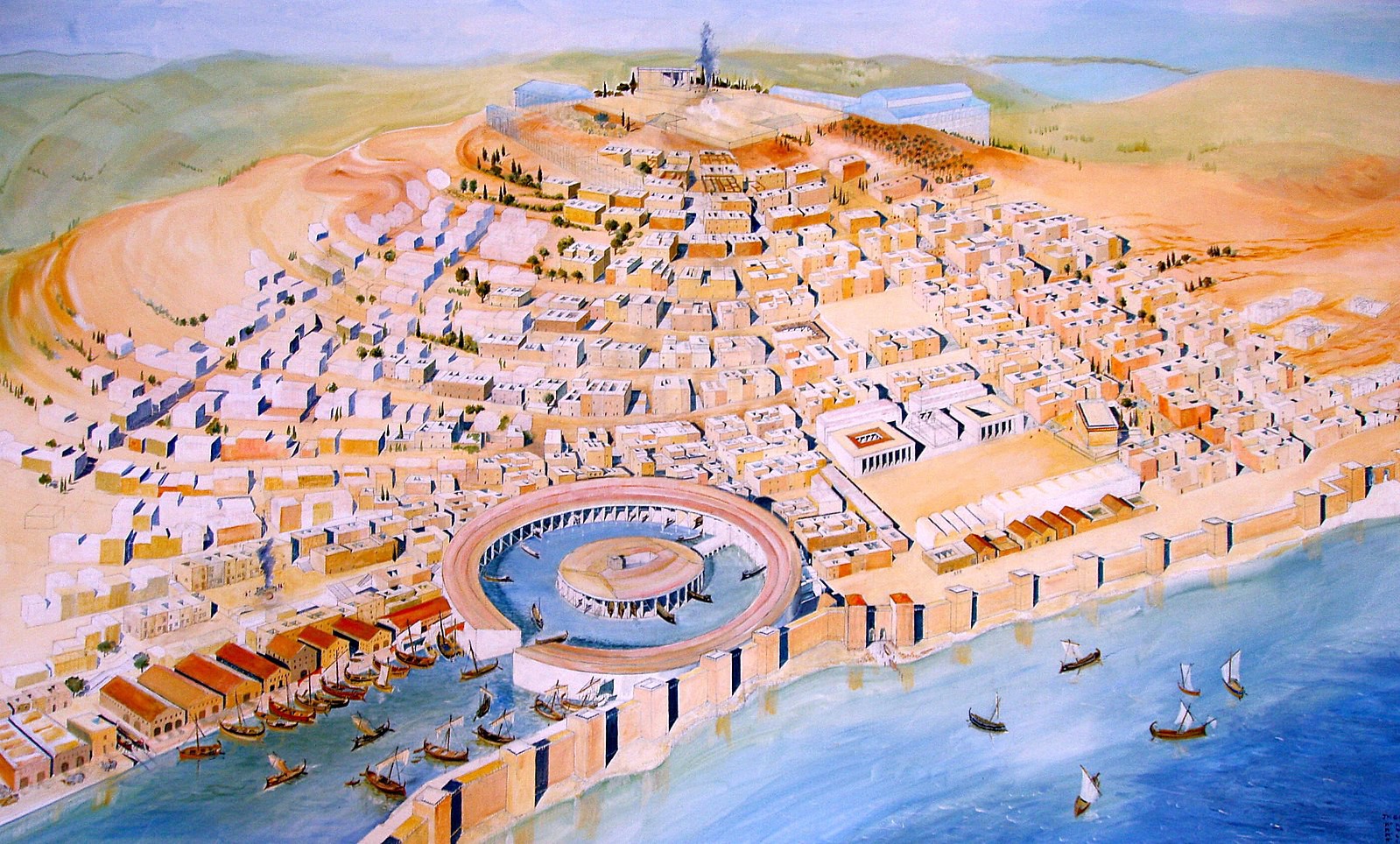49 Rōmānus, Rōmān-a, RōmānumRoman
Other Romans were loving rank and dignity more than goodness. (18) I hold one letter from your mother, another from your father. (19) Beauty loves praise no less than virtue (does). (20)
“Now let me set the stage for what’s about to happen. Laberius, the author of the next mime, has criticized Caesar’s dictatorship in his recent script. After ignoring him for a while, Caesar decided to respond. In front of an audience he declared, ‘Let Laberius go act in his own mimes’ – dismissing his criticism as meaningless, pure performance.”
“But telling Laberius to do so was a major insult. Laberius is a knight, and for a Roman knight, to appear onstage as an actor would be a deep humiliation, since actors were considered īnfāmis, scandalous and undignified. Maybe Caesar didn’t intend it as an insult, but Laberius has chosen to take it as one. Now he can say: Caesar forced me, a proud Roman knight, to act in my own play. How humiliating! And if he can do that to me, he can do that to you too, no matter what your rank is!”
As she spoke, the curtain dropped. (Roman curtains fell to the floor, instead of rising.) And there on the stage stood Laberius himself, an old man dressed in dark mourning clothes, introducing his mime. The speech he gave was full of indignation and self-pity; this last portion of it may give you the general idea:
Egō, bis tricēnīs annīs āctīs sine notā, eques Rōmānus ē Lare ēgressus meō domum revertar mīmus: nīmīrum hōc diē ūnō plūs vīxī mihi quam vīvendum fuit.
Fortūna, inmoderāta in bonō aequē atque in malō:
sī tibi erat libitum litterārum laudibus flōris cacūmen nostrae fāmae frangere,
cūr, cum vigēbam membrīs praeviridantibus, satisfacere populō et tālī cum poteram virō, nōn flexibilem mē concurvāstī ut carperēs?
Nuncīne mē dēiecis? Quō? Quid ad scēnam adferō? Decōrem fōrmae an dignitātem corporis,
animī virtūtem an vōcis iocundae sonum? Ut hedera serpēns vīrēs arboreās necat, ita mē vetustās amplexū annōrum ēnecat.
Sepulchrī similis, nihil nisi nōmen retineō.
She translated it for me, and handed me this translation, then asked me to identify the individual Latin words that correspond to the English words in italics: (21)
I, having passed twice thirty years without a mark, after leaving my house as a Roman knight
will return home a mime; truly on this day
I have lived one more (day) than one ought to live.
Fortune, immoderate in good and in bad equally:
if it was pleasing to you, in the praises of literature, to break off the tip of the flower of our fame, why, when I was strong, with very fresh limbs,
when I was able to satisfy the people and a man like this,
why didn’t you bend and flex me then so that you could pluck (it)?
You throw me down now? Why? What do I bring to the stage? Charm of beauty, or dignity of body,
virtue of mind or the sound of a pleasant voice? Just as creeping ivy kills the strength of trees, so old age kills me with the embrace of years. Just like a tomb, I retain nothing except a name.
Laberius was clearly playing to the senators and knights in the front row, with the message: if Caesar can humiliate me like this, he could do the same to any one of you. But the plebs weren’t having it; I heard a bit of polite applause from the audience, but mostly silence or derisive laughter.
Then, after a quick costume change, the play itself began. Laberius came out again, this time – casting all subtlety aside – dressed as a slave. He was playing a character named, of all things, ‘Syrus’! He wasn’t just taking on Caesar, no, he was openly insulting his rival, picking on his slave background. But the act failed; Syrus’ fans were laughing at him, and the rest of the audience was muttering uncomfortably. Just to drive the point home, Laberius’ script contained these two pointed lines:
Porrō,Quirītēs,lībertātemperdimus, Even further, citizens of Rome,freedomwe are losing.
necesse estmultōstimeatquem multī timent. Necessary it is (that) many menhe should fear whom many men fear.
It was a brave stunt but ultimately not so smart.
At the end of the show, Caesar stood up to deliver his verdict: favente tibi mē, victus es, Labērī, ā Syrō, “While I favored you, you have been defeated, Laberius, by Syrus.” He handed Publilius the palm of victory –who came down to the stage to take it, bowing to the cheering audience – while placing a gold ring and 500 sesterces on the stage for Laberius, who refused to touch it. As Laberius was storming out, Publilius shouted after him: Quīcum contendistī scrīptor, hunc spectātor sublevā, “That man you contended with as a writer – now go elevate him as a spectator!”
It was clearly a triumph for Syrus. But Caesar’s involvement threw everything out of balance, making the spectacle cringeworthy, and a little sinister. It was not a good day for ‘freedom’, or art, or the fabric of Roman society.

- A denarius coin issued under the authority (imperiō = IMP on coin) of Gaius Cassius Longinus and Lentulus Spinther in 42 BCE. It alludes to the assassination of Julius Caesar two years earlier by featuring the goddess Liberty, Leibertās. Note the extra e in the spelling of her name – this was one way of marking the long vowel.

- A reconstruction of ancient Carthage, from a museum at the modern site. Notice the distinctive cōthōn or circular harbor lined with ship-sheds.